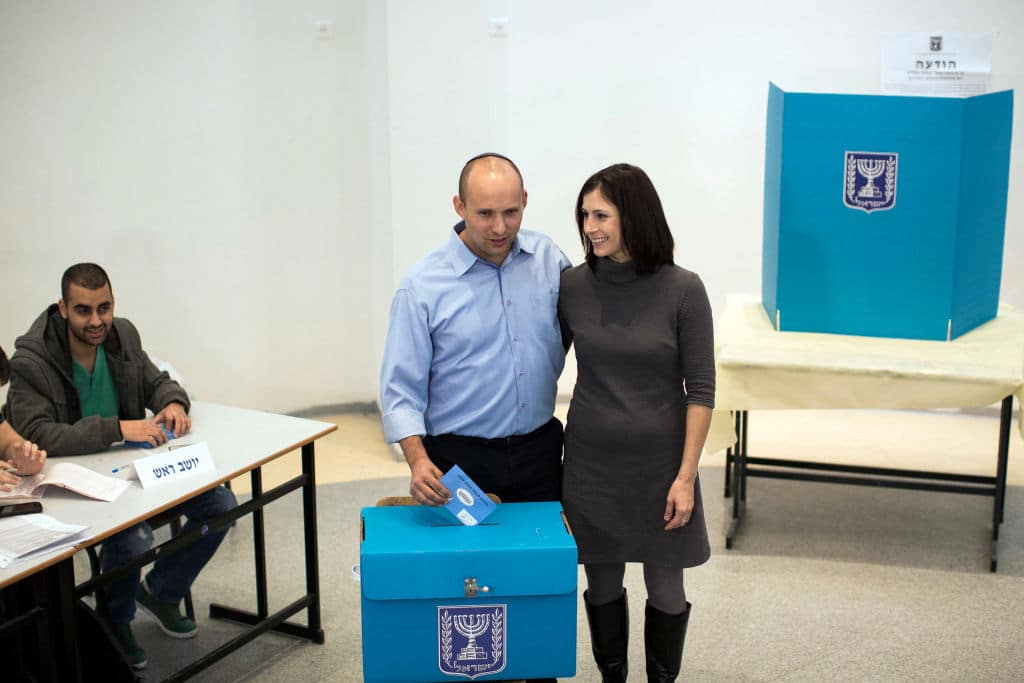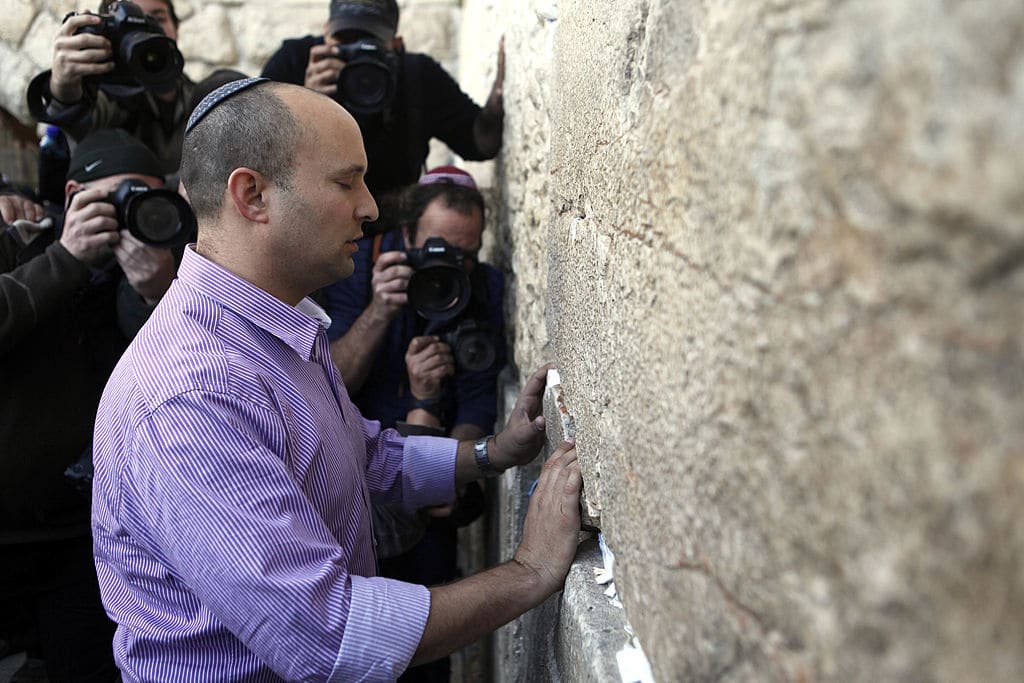
Editor’s note: Naftali Bennett officially handed over the prime minister’s office to Yair Lapid on Thursday, June 30, 2022. You can read about who Lapid is here.
Israeli Prime Minister Benjamin Netanyahu and his Likud party are out and a new coalition government led by Naftali Bennett is in. Netanyahu was the longest serving prime minister in Israeli history, in the post for 12 years.
This is the photo that created a new government in #Israel.
— Johnny Kunza (@johnkunza) June 2, 2021
Naftali Bennett, Yair Lapid and Mansour Abbas are seen signing a coalition deal that puts Benjamin Netanyahu out of office. The deal brings together a conservative, liberal and Arab Islamist political party. pic.twitter.com/tZbFSI8we1
The deal came together at the very last minute when Ra’am, an Israeli Arab Islamist political party, leader Mansour Abbas threw his support behind the coalition which was organized by centrist politician Yair Lapid. This is the first time in Israeli history that an Islamist or Arab party is part of a ruling coalition.
So who is Naftali Bennett, a former ally of Netanyahu, and what does Israel’s new government look like?
Who is Naftali Bennett?

- Religious, Modern Orthodox Jew, 49 years old
- Son of immigrants from San Francisco, born in Haifa
- Married to Gilat, a professional pastry chef, who became religious after marrying Bennett, they have 4 children
- Served in elite IDF commando units Sayeret Matkal and Maglan, attended Hebrew University Jerusalem
- Made money in anti-fraud software while living in New York City
- Moved back to Israel to get into politics in 2006
- Hardline conservative, self proclaimed “right-wing,” headed up a West Bank settler organization
- Ally of Netanyahu, served as former chief of staff, former education minister, former defense minister
What’s the coalition deal?
- Bennett serves as prime minister for 2 years, then centrist politician Yair Lapid takes over.
- Key cabinet positions distributed to participating parties
Who’s in the new government:
- Centrist, conservative, liberal and Islamist parties
Who’s left out:
- Netanyahu, Likud
- Ultra-Orthodox parties
Israel-Palestinian conflict positions:
- Against an independent Palestinian state in Gaza/West Bank. His stance is at odds with coalition parties.
I/P conflict position in his own words:
- “I oppose forming a second Palestinian state in what you call the West Bank. Judea and Samaria has been a Jewish state for roughly 3,300 years, well before, you know, the first Americans reached the new continent of America. And we’re going to stay here forever.”
- “There are roughly 22,000 Palestinians working side by side with what you call settlers in factories and malls in the West Bank. If you work together, you start understanding each other.”
- “I want the world to understand that a Palestinian state means no Israeli state. That’s the equation.”
- “Israel will not divide its land. We’re already too small.”
- “What I’m working is for peace on ground between Israelis and Palestinians through business, through economy, through quality of life.”
- “I’m not going to tell the Palestinians how to arrange themselves. If they want to have their own entity and their own parliament as they do today, that’s fine. If they want to connect to Jordan, which has a very big Palestinian population, and vote in the Jordanian government, that’s fine.”
- “There’s 2 million Palestinians that govern themselves. They have their own parliament, their own government, their own elections, their own tax system. I don’t want to govern the Palestinians; no one does. They already govern themselves.”
Position on religious matters:

- Centrist on LGBTQ rights
- More pluralistic than his Orthodox partners, in 2018 Israel’s chief rabbi slammed Bennett for visiting a Conservative school.
- He’s publicly called out Israel’s chief rabbinate on matters, including conversion.
In his own words:
- “We believe in strengthening the Jewish identity of Israel. I’m Jewish. I believe that we have to embrace our heritage, our history, our – you know, our roots. I’m not ashamed of that. I’m right-wing, and I’m proud of that.”
- “Factually, the Temple Mount is the precise location of the Temple. It’s the holiest place in the world for Jews. It’s the third holiest place for Muslims. And we need to respect each others’ rights, freedom of religion.”
- “The reality is, if you were fortunate to be born to rich parents, you have a better chance of succeeding in life. And that’s wrong.”
- “We know that 99.9% of Arab-Israelis are loyal to Israel.”
- “The biggest danger for any organism is to not identify that it’s being threatened. I want to hope that people realize that the source of danger and risk in the Middle East is not the Israeli-Palestinian conflict but the deep radical Islamic vision of forming a global caliphate.”
How this affects Jews outside of Israel:
- The rights of converts making Aliyah could change now that Ultra-Orthodox parties are out of power.
- Diaspora relations/outreach could increase. In 2018, then as education minister, he said the following: “If there is one thing that keeps me up at night, it’s not Iran, it’s the future of the Jewish people in the diaspora. If we don’t act soon, we’re going to be losing millions of Jews to assimilation.”
- US Jewish relations: “I think this is one of the greatest challenges of our generation. It’s got to be at the top of our list. There’s an Atlantic-Jewish chasm growing between Israelis and Jews in the United States … The Israeli population is gradually going more rightward and becoming more traditionally Jewish, whereas American Judaism is more left and liberal. That’s a fact. I don’t know how to whitewash that, but it should not be a reason to fall apart.”
Originally Published Jun 2, 2021 07:17PM EDT


